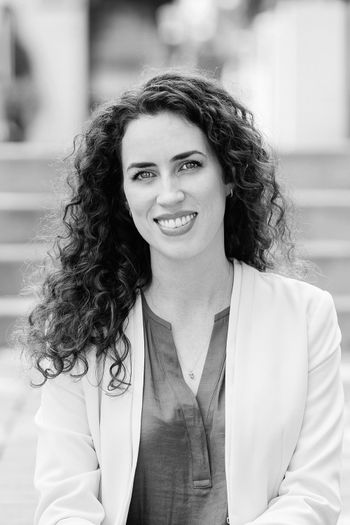OPINION: First Amendment violations at U. Illinois…again
Jewish students filed a complaint against the university after the student government passed yet another anti-Israel resolution.
Students across the country can expect to see even more student government resolutions that infringe on First Amendment rights in 2021.
Editor’s note: The views in this opinion editorial are those of the author and do not necessarily reflect those of Campus Reform or of its parent organization, the Leadership Institute.
The latest in a rising tide of harassment against Jewish students on American college campuses comes from the heartland, and the story shocks the conscience. Last week, the Louis D. Brandeis Center for Human Rights Under Law publicized a complaint it filed with the U.S. Department of Education Office of Civil Rights (OCR). In it, the Brandeis Center outlined thirteen specific incidents of harassment and discrimination against Jewish students on the University of Illinois Urbana-Champaign (UIUC) campus in violation of Title VI of the Civil Rights Act.
The incidents ranged from swastika drawings and threats of violence against Jewish students, to diversity training denouncing Zionism and glorifying a terrorist organization, to precluding a member of the student government from voting to divest resources supporting Israel because “she’s Jewish.”
Sadly, this is not a rare occurrence. Despite the Trump administration’s efforts to combat such attacks on campuses, active and hostile discrimination against pro-Israel and Jewish students has not gone away. And as we near Election Day, students should brace themselves for more harassment – either in a more permissive Biden administration or under a Trump administration whose pro-Israel policies unfortunately embolden groups like Students for Justice in Palestine (SJP) and others to surge their attacks.
[RELATED: OPINION: Free speech means defending language you don’t like]
At UIUC, the Jewish population is being targeted. Although there are some instances of discrimination from administrators, most discrimination against Jewish students on campus comes directly from their peers and student leaders. The Brandeis Center lays out each instance of discrimination. For example, on more than one occasion, a brick or rock has been thrown through the window of a Jewish fraternity. In September 2019, students were required to undergo diversity training. During the session, a student gave a presentation glorifying the terrorist organization Popular Front for the Liberation of Palestine, violence against Jews, and Palestinian “martyrs.”
In February 2020, the student government overwhelmingly passed a resolution calling on the university to divest from three companies that support Israel. Finally, in September 2020, two members of SJP authored a resolution on behalf of the student government which again called on the university to divest from companies that do business with Israel. The resolution also called on the university to develop a human rights task force. “The resolution linked divestment from Israel to pressing social and racial justice issues like criticism of police brutality and environmental harm,” writes the Brandeis Center. As a result, the resolution “[drove] a wedge among politically progressive students on UIUC’s campus—isolating Jewish and pro-Israel UIUC students from all the others.”
We wish that the Brandeis Center’s complaint shocked us. But through our 1A Project, where SLF defends free speech rights on college campuses, we work with students who face similar unconstitutional attacks every day.
[RELATED: OPINION: 4 big problems facing higher education]
Whereas college administrators were typically the worst offenders when it came to students’ rights, an increasing number of unconstitutional policies come not from administrators but from student governments. This happens frequently with pro-life groups. The University of Georgia student government told their peers last year that they could not post pro-life messages on campus because the messages “could have had triggering effects” on the student body. Likewise, the student government at the University of Northern Iowa refused to even recognize a pro-life group as a student organization because it was a “hate group.”
At UIUC and other campuses, Jewish students find themselves in difficult positions where they can’t express their religious or political views for fear of backlash from peers or student government associations who have—or at least appear to have—authority over the student body. Rather than express their views, the Jewish students self-censor to avoid the potential consequences of speaking. This is called a chilling effect, and under the First Amendment, it is unconstitutional.
This isn’t the first time we’ve seen unconstitutional restrictions on student speech at UIUC. One year ago, SLF filed an amicus brief in support of a First Amendment lawsuit against the school. UIUC students wanted to engage in discussions about topics like “Israel, immigration, abortion, [and] the right to bear arms,” but self-censored because they feared being punished for sharing their views. SLF wrote that each of those topics was essentially political in its nature, and any attempts to proscribe political speech “directly contradicts the very agencies our Founding Fathers deliberately selected to keep our society free.”
The events at UIUC provide a cautionary tale to the public. In our increasingly polarized society, interest groups and their student followers will try to drive wedges between peers and create factions, which our Founders strongly warned against. This is especially true during election seasons like this one. Fortunately, regardless of who is elected president, the Constitution was written to survive and protect against factions and tyranny of the majority. It is imperative that government officials—ranging from the highest office of the presidency to student government associations at public universities—adhere to the Constitution, and the courts are likely to be the battleground when they don’t.

